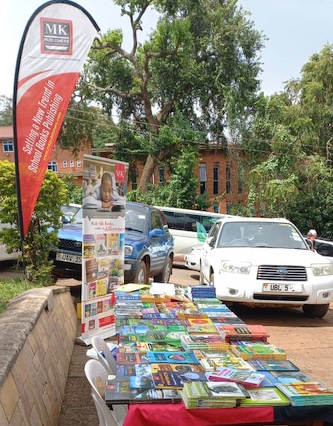
 MK Publishers Limited, one of Uganda’s oldest and largest book publishers, has been ordered to pay Shs 100 million in damages and 30 per cent royalties to author Annette Najjemba.
MK Publishers Limited, one of Uganda’s oldest and largest book publishers, has been ordered to pay Shs 100 million in damages and 30 per cent royalties to author Annette Najjemba.
The High court found that the company unlawfully reproduced and sold Najjemba’s work without consent. She sued the publisher for copyright infringement after discovering in 2013 that her children’s manuscript, Our Folktales, had been adapted into audio stories and sold to the Rwandan government for use in its primary school curriculum.
Her manuscript contained six stories: The Gooseberry Triplets, Mukoijo the Glutton, The Cruel Stepmother, Muvubi and His Fish Friends, Kaleku and the Enormous Beast, and The Snake and the Beautiful Girl.
Najjemba told court she had submitted the collection to MK Publishers for possible publication, only to later learn that the company had modified the stories to fit Rwandan cultural settings and packaged them as an audio collection for primary five and six learners.
MK Publishers denied wrongdoing, insisting Najjemba had voluntarily submitted her manuscript for publishing and marketing. The company further claimed she had been aware of the adaptations and that her entitlement to royalties made the lawsuit unnecessary.
But justice Patience Rubagumya ruled in Najjemba’s favour, noting that the publisher had no legal authority to alter or reproduce her work.
“The defendant had no valid written licence, assignment, or transfer of the plaintiff’s copyright authorising it to alter, adapt, and reproduce her literary work as required under the Copyright and Neighbouring Rights Act,” the ruling reads in part.
She awarded Najjemba Shs 70 million in general damages and Shs 30 million in exemplary damages, both accruing 6 per cent annual interest. The court also ordered MK Publishers to pay Najjemba 30 per cent of profits earned from the Rwandan sales, with a 24 per cent annual interest backdated to 2013 until full payment.
Additionally, Najjemba was awarded costs of the suit. The ruling is being hailed by copyright activists as a landmark case for Uganda’s publishing industry, where disputes between authors and publishers over intellectual property have long been underreported.
Why Najjemba’s case matters
Copyright disputes in Uganda’s publishing sector are not new, but few make it to court, and even fewer result in damages of this scale. Authors, especially in children’s literature and educational publishing, have often accused publishers of exploiting their manuscripts, adapting them without permission, or underpaying royalties.
What sets Najjemba’s case apart is that it involves cross-border publishing rights. The adaptation and sale of her work in Rwanda without a clear licensing agreement illustrates how Ugandan authors risk losing control of their intellectual property once manuscripts leave their hands.
For publishers, the case underscores the urgent need to formalise contracts that clearly spell out issues of adaptation, licensing, royalties, and cross-border sales. For authors, it is a reminder that retaining ownership of their manuscripts requires vigilance and legal safeguards.
Observers say the court’s ruling could embolden other authors to challenge long-standing grievances with the industry and push for reforms in how Uganda’s publishers handle contracts, potentially reshaping the relationship between writers and the companies that distribute their work.



